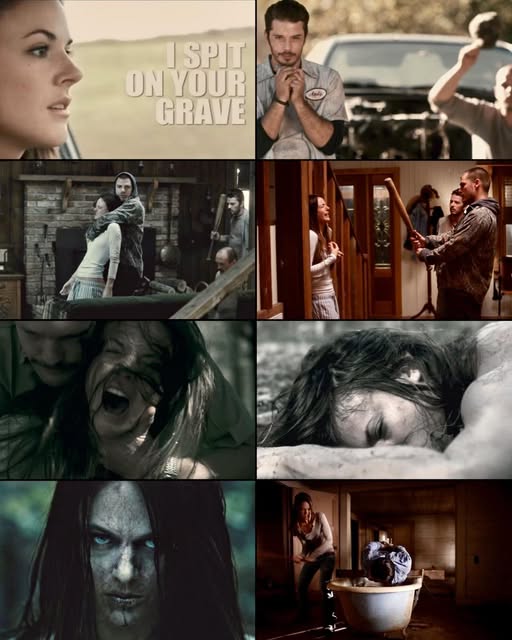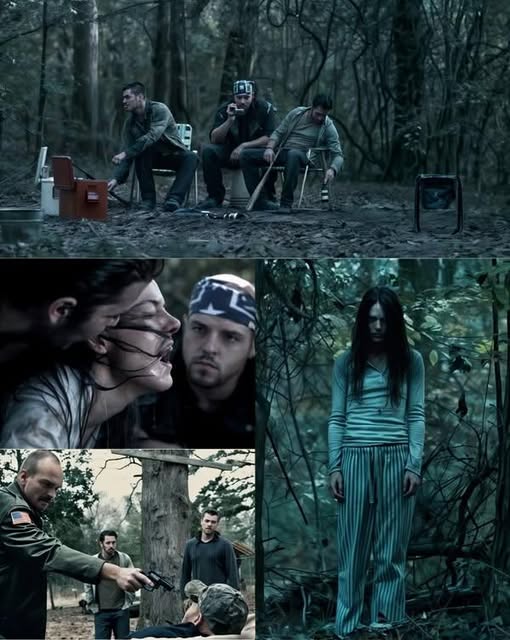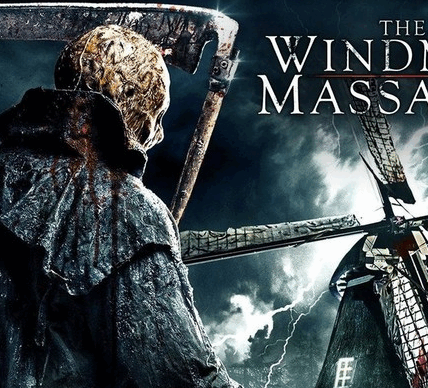Movie Overview
- Title: I Spit on Your Grave (2010)
- Release Date: 2010 (U.S.)
- Genre: Horror / Exploitation / Rape-Revenge
- Director: Steven R. Monroe
- Main Cast: Sarah Butler (Jennifer Hills), Jeff Branson, Andrew Howard, Daniel Franzese, Rodney Eastman, Chad Lindberg
- Where To Watch: Available for digital rental / purchase; check horror / niche streaming platforms (depending on region)
1. Plot Summary
Jennifer Hills, a writer from New York, rents a remote lakeside cabin in rural Louisiana to find solitude and work on her next novel.
Shortly after arriving, she draws unwanted attention from several local men who harass her. The harassment escalates horrifically: Jennifer is brutally gang-raped, tortured, humiliated, and left for dead by her assailants (including local men and a corrupt sheriff).
Against all odds, Jennifer survives. She chooses not to die quietly—but to return and exact violent, meticulous revenge on those who assaulted her, methodically trapping and punishing them in brutal ways.
The film thus splits into two major halves: the traumatizing assault and the subsequent revenge campaign, where Jennifer becomes avenger, turning the tables on her attackers.

2. Notable Elements
What Stands Out (Strengths / Memorable Scenes)
- Intensity & Brutality: The film does not shy away from visceral violence. The rape and torture sequences are prolonged and graphic. That rawness is meant to shock and provoke, rather than sanitize the horror.
- Revenge Creativity: The second half features revenge traps and punishments that are elaborate and, for horror fans, disturbingly inventive. For example, booby traps, psychological torment, and retributive symbolism are used.
- Sarah Butler’s Performance: Butler’s portrayal of Jennifer is committed. She is required to embody both victimhood and ruthless determination. Many reviews and critics recognize her ability to maintain presence through extreme material.
- Unapologetic Tone: The film does not soften its subject. It fully embraces its exploitation / revenge horror identity, operating without much moral equivocation (though that is also a point of critique).
Weaknesses / Problematic Aspects
- Ethical / Moral Ambiguity & Exploitation: Critics have long pointed out that the film can feel exploitative, using sexual violence for shock and spectacle. Some argue that it fails to engage with deeper social critique, and instead sensationalizes trauma.
- Character Depth: Beyond Jennifer and some of the attackers, many characters are one-dimensional. The rapists are mostly grotesque caricatures; motivations are thin. That reduces nuance and makes the conflict mostly symbolic rather than psychological.
- Imbalance of Focus: Some viewers criticize that the film devotes excessive screen time to the assault and suffering phases, and relatively less time to emotional or psychological resolution. The revenge, though brutal, sometimes overshadows deeper human complexity.
- Repetitive / Overlong Scenes: Given the extreme content, certain scenes risk desensitization or fatigue. The film’s pacing occasionally suffers under the weight of repeated brutality.
- Tone & Viewer Comfort: The film is extremely disturbing. It is not for casual viewing. Many will find the content harrowing and traumatic, which limits its audience drastically.
3. Themes & Messages
- Revenge as Justice / Retribution vs Morality: The central theme is revenge—whether it can be a form of justice when systems fail survivors. The film asks (in a harsh way): when institutions won’t protect, can the victim become judge, jury, and executioner?
- Power & Agency: Jennifer’s transformation from victim to avenger is about reclaiming personal agency forcibly. Her body, once violated, becomes instrument of vengeance. It is an extreme, controversial statement about empowerment.
- Violence & Its Echoes: The film does not pretend violence leaves no scars. The psychological, physical, and moral damage is profound. The trauma is central, not peripheral.
- Moral Boundaries: The film blurs lines: Jennifer’s method of revenge is brutal and incurs moral cost. It forces the question: does vengeance degrade the avenger?
- Silence, Voice & Shame: Jennifer’s assault attempts to silence her; her revenge speaks back, loudly and painfully. The film plays with shame and voice, forcing the audience to confront privilege, violation, and retaliation.
Because of its nature, these themes are dark and not comforting; they don’t map easily onto holiday sentiments. But in a somber or reflective frame, they provoke questions about justice, violence, survival, and retribution.

4. Personal Impressions
What I Respect / Liked
- The film’s boldness: Few mainstream films are so unflinching in depicting sexual violence and its aftermath. It dares to go into darkness rather than avoid it.
- Butler’s performance anchors much of the film. She carries the emotional weight across extremes.
- The revenge half is cathartic (for some viewers). It does what it promises: turn passive trauma into active retribution.
What I Struggled With
- The moral cost is sometimes underexplored. The film revels in brutality but rarely pauses to reflect on consequences or remorse, which can leave it feeling more spectacle than commentary.
- The supporting cast and motivations sometimes feel superficial. Because the attackers are not well rounded, confrontation becomes simplistic.
- The relentless violence can numb the viewer. There are moments I felt overwhelmed, not moved.
- The shift between horror and retaliation can feel disjointed — from victim to avenger trajectory is dramatic, but the emotional transitions are abrupt.
5. Audience Recommendations
Who might (only) watch this:
- Fans of extreme horror / “rape-revenge” subgenre and exploitation films, who are accustomed to disturbing content and looking for a brutal, cathartic narrative.
- Viewers interested in darker statements on vigilante justice and survival, rather than sanitized horror.
- Those who can handle emotionally intense, graphic depictions of sexual violence — this film is not mild by any measure.
Who should avoid / be cautious:
- Anyone sensitive to sexual violence, assault, torture, or trauma. This film can be deeply triggering.
- Viewers who prefer horror with metaphorical or minimal depiction of violence. This is explicit and visceral.
- Those who seek uplifting, escapist, or morally clean entertainment. This is raw, messy, and morally ambiguous.
6. Conclusion & Rating
I Spit on Your Grave (2010) is a provocative, divisive film. It succeeds at delivering revenge horror in a brutal, unrelenting manner, and its lead performance is powerful. But its flaws — its exploitative impulses, underdeveloped characters, and moral bluntness — mean it will remain controversial rather than universally admired.
Final Recommendation: Watch only if you are prepared for extreme material and want to engage with horror that confronts violence, vengeance, and trauma. It is not entertainment in the light sense, but a dark, harrowing piece.
Star Rating: ★★☆☆☆ (2 out of 5 stars) — potent, but deeply flawed and meant for a very cautious audience.




